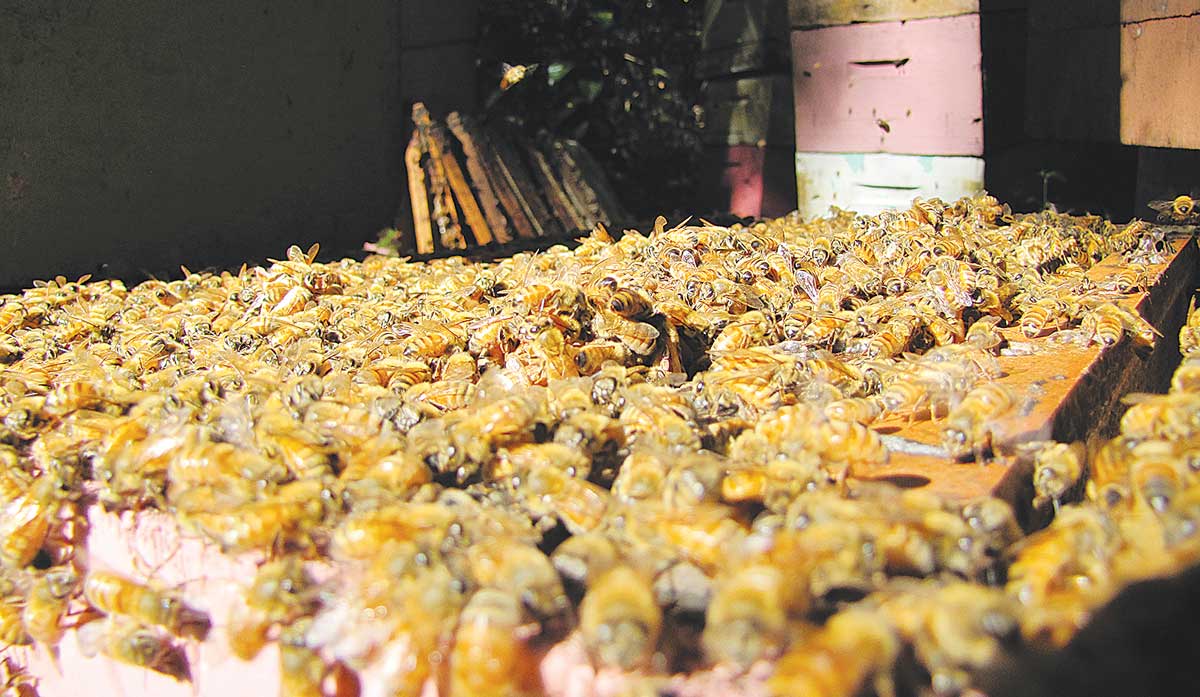Global retailers taste NZ mānuka honey offerings
Thousands of honey retailers and professionals worldwide are getting a taste of the remarkable properties of New Zealand mānuka honey.
The Trans-Tasman battle for naming rights for mānuka honey continues as - after an initial withdrawal - Kiwi honey advocates have filed for a replacement application in the UK and EU.
The Australian Manuka Honey Association (AMHA) welcomed the initial withdrawal of legal proceedings in the UK and Europe by New Zealand's Manuka Honey Appellation Society (MHAS). This would leave them free to sell their produce in those jurisdictions under the globally recognised "Manuka" name.
Tom Walters, a New Zealand-based AMHA member and former member of New Zealand's United Manuka Factor (UMF), is unimpressed by the latest move by MHAS.
“As a Kiwi, I believe the debate around who may use the name mānuka honey is detrimental to the New Zealand industry and of no benefit whatsoever to NZ beekeepers nor the industry as a whole in its current context,” he told Rural News.
The international manuka honey market is forecast to be worth $1.27 billion in annual trade by 2027. Australia produces between 20,000-30,000 tonnes per year, at an estimated value of A$147 million per annum.
AMHA chairman Paul Callander says with growing demand for the product both for consumption and use in medicinal and wellbeing products, greater certainty in the UK and Europe allows Australian manuka growers to enjoy their share of this demand.
He told Rural News that the mānuka tree is also native to the southeastern coasts of Australia and scientific analysis at the University of Sunshine Coast has shown no physical or chemical difference between honey produced from either country. He says the call for a legal protection for New Zealand honey alone is hard to understand from an Australian perspective.
“If you can trademark a descriptive term like manuka, what else can you trademark?” Callander asks. “What impact does that have as a precedent? Our position is that it’s not in any country’s interest to do that.”
New Zealand’s sole justification for the name mānuka looks sketchy. The first recorded use of the term “manuka honey” (no macron) in fact dates from an Adelaide newspaper in 1927. In fact, until 1839, New Zealand had no native honeybees. While, even prior to European settlement, there had been honey producing bees in Australia; meaning Australian manuka honey most likely predates New Zealand honey.
MHAS discontinued its High Court appeal in the UK and EU just before Christmas, meaning the Intellectual Property Office’s (IPO) previous rejections of MHAS’s application to trademark the words “manuka honey” would stand.
However, that did not last long. Just two days later, MHAS filed another application, claiming its earlier withdrawal was “for technical reasons.”
 |
|---|
|
The Australian Manuka Honey Association believes NZ and Australia should work together to boost manuka's prestige worldwide. |
Callander and Walters feel the Australian manuka industry has been making efforts to reach out to the New Zealand industry for collaboration. However, they claim the New Zealand industry has been “combative and underhanded” in its attempts to shut Australia out of the UK and EU markets.
Callander believes that as the native home of manuka, both New Zealand and Australia must work together to boost manuka’s prestige worldwide and protect customers from fraudulent product.
“There’s an English company that grows manuka and we’ve been asked to sell plants to a Middle Eastern company, but we’ve said no,” he told Rural News. “If you start growing it all over the world you lose control of quality.”
Callander adds that although the AMHA had initially wanted collaboration with New Zealand mānuka growers, the reapplication in the IPO’s is undermining trust amongst Australian growers.
He also stated that the AMHA is ready and willing to contest the application and has been receiving legal advice and financial support from the government.
Rural News was unable to reach either MHAS or UMF for comment.
Legal controls on the movement of fruits and vegetables are now in place in Auckland’s Mt Roskill suburb, says Biosecurity New Zealand Commissioner North Mike Inglis.
Arable growers worried that some weeds in their crops may have developed herbicide resistance can now get the suspected plants tested for free.
Fruit growers and exporters are worried following the discovery of a male Queensland fruit fly in Auckland this week.
Dairy prices have jumped in the overnight Global Dairy Trade (GDT) auction, breaking a five-month negative streak.
Alliance Group chief executive Willie Wiese is leaving the company after three years in the role.
A booklet produced in 2025 by the Rotoiti 15 trust, Department of Conservation and Scion – now part of the Bioeconomy Science Institute – aims to help people identify insect pests and diseases.